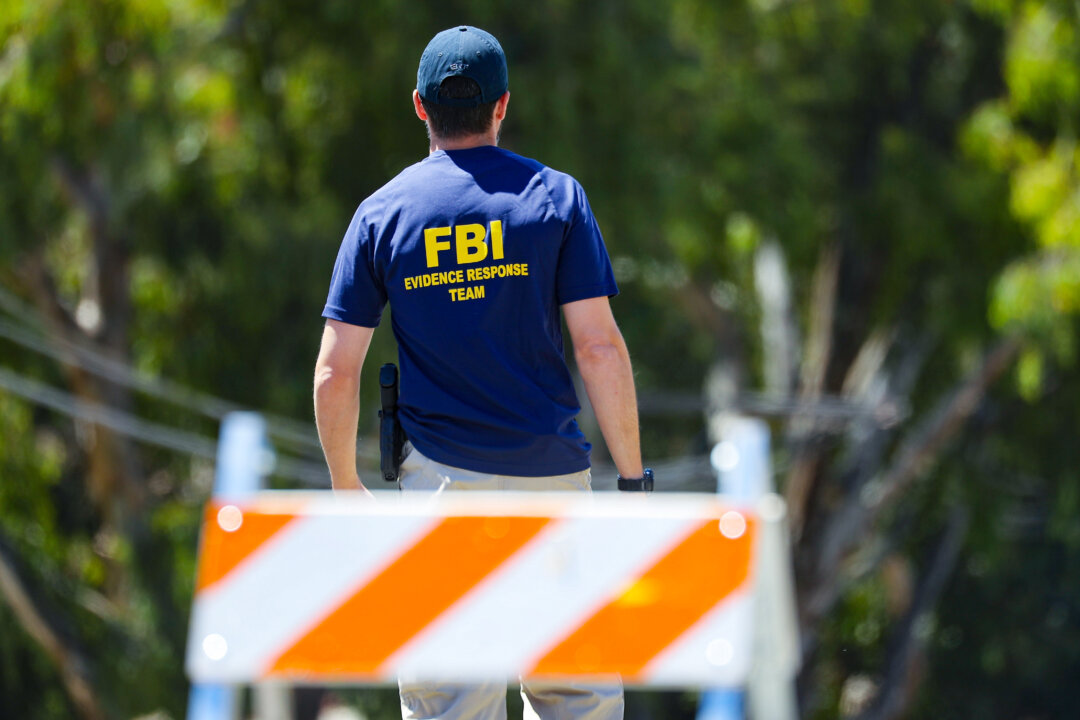Foreign adversaries still might promote ‘false or misleading narratives,’ the bulletin says.
The FBI and a federal agency dedicated to cybersecurity issued a warning on Oct. 18 about efforts by foreign actors trying to “spread disinformation” regarding the upcoming Nov. 5 election—with just over two weeks ago before the contest.
The FBI and the U.S. Cybersecurity and Infrastructure Security Agency (CISA) said they have “no information suggesting cyber activity against U.S. election infrastructure” that has “compromised the integrity of voter registration information, prevented an eligible voter from casting a ballot, impacted the integrity of any ballots cast, or disrupted the ability to count votes or transmit unofficial election results in a timely manner.”
But the two agencies said that foreign adversaries still might promote “false or misleading narratives” to sway the election or to undermine American confidence in its election systems and processes.
Specifically, the two agencies warned of election-related content produced by artificial intelligence (AI) that has lowered the guardrails for malicious or foreign actors to create more advanced schemes to influence the election.
“We are seeing foreign actors use these tools to develop and distribute more compelling synthetic media messaging campaigns and inauthentic news articles, as well as synthetic pictures and deepfakes (video and audio) at greater speed and scale across numerous U.S.- and foreign-based platforms,” their joint bulletin said.
“These efforts to develop content are designed to undermine voter confidence and to entice unwitting consumers of the information to discuss, share, and amplify the spread of false or misleading narratives.”
In one example of AI-aided content produced by foreign actors ahead of the election, the agency said that Russian groups have “created and deliberately designed” web pages “to look like legitimate mainstream news websites” such as The Washington Post or Fox News.
“Russian malign influence actors also created fake social media profiles posing as U.S. citizens to direct users to these fake news websites and purchased social media advertisements to drive traffic to the specific fake articles on the fake news site,” the two agencies cautioned.
The PSA highlights specific examples of tactics we have seen used by Russia and Iran during the 2024 election cycle to target all Americans. These include things from mimicking national level media outlets like The Washington Post and Fox News and creating inauthentic news sites posing as legitimate media organizations to using paid influencers to hide their hand.
In late September, three Iranian government employees were charged and identified by the Department of Justice for a wide-ranging hacking conspiracy that targeted both current and former U.S. officials as well as political campaigns.
The bulletin was referring to an indictment that was returned last month that accused Masoud Jalili, Seyyed Ali Aghamiri, and Yasar Balaghi of trying to hack the campaign of a presidential candidate, without providing names. But in a news conference last month, Attorney General Merrick Garland confirmed that they were targeting the campaign of former President Donald Trump.
Iran-backed hackers who breached the Trump campaign in June and July sent emails with hacked campaign materials to people associated with President Joe Biden’s campaign as well as various media outlets, said the FBI, CISA, and the Office of the Director of National Intelligence last month.
But the agencies said that the the campaign of Biden, who suspended his presidential bid in late July, was not interested in the hacked materials. There is also no evidence the Biden campaign even responded to the emails, which were described by the intelligence and cybersecurity agencies as unsolicited.
“It is important for voters to critically evaluate information sources, particularly as disinformation campaigns evolve to use AI-generated content,” both CISA and the FBI said in a news release accompanying the bulletin. “Both agencies urge the American public to rely on trusted information from state and local election officials and to verify claims through multiple reliable sources before sharing them on social media or other platforms.”

